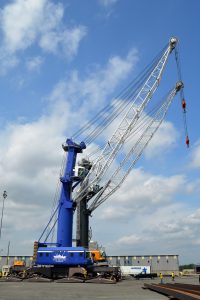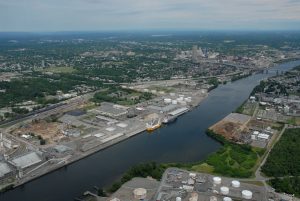Economic Development
Economic Development District | Foreign-Trade Zone | Funding Resources | Future Leaders in Planning

The Capital District Regional Planning Commission leads and supports economic development activities primarily within Albany, Rensselaer, Saratoga, and Schenectady Counties. Programs such as the Foreign Trade Zone reach a larger region which includes 10 counties in Upstate New York.
Staff work directly with the Capital Region Economic Development Council, the Center for Economic Growth, area Chambers of Commerce, and many more stakeholders and partners to foster a positive climate for growth and prosperity.
Economic Development District
Certified by the U.S. Dept. of Commerce as an Economic Development District (EDD) in 1987, CDRPC receives annual grants from the Economic Development Administration (EDA) for Regional economic planning. Inclusion of the four counties in the EDD also allows them to be eligible for EDA technical assistance and public works grants.
EDA financial support materially assists the Planning Commission in the collection and publication of demographic and economic data and information for the Region.
Comprehensive Economic Development Strategy (CEDS)
CDRPC is responsible for developing and maintaining a continuing planning process for Regional economic development pursuant to federal guidelines set forth by the Economic Development Administration. As part of its ongoing planning and research functions, CDRPC maintains Regional economic and demographic data bases which provide the basic information necessary for economic analysis.
Capital Region Foreign-Trade Zone

Since 1986, the Commission has been the grantee for the Capital Region Foreign-Trade Zone (FTZ). The FTZ provides area businesses with certain benefits on imported materials and goods. Usage-Driven Sites may be established anywhere within our 10-county FTZ service area around the Capital Region. The Capital Region FTZ also includes one magnet site exists at Luther Forest-STEP in Saratoga County.
The FTZ program is primarily focused on benefits associated with tariffs on imported materials and goods. In an FTZ, duty may be:
- Deferred,
- Eliminated, or
- Inverted
Foreign-trade zone users may also benefit from a number of other related benefits including a reduction in fees, direct delivery, and the opportunity to conduct processing or manufacturing.
For more information, visit the Capital Region Foreign-Trade Zone.